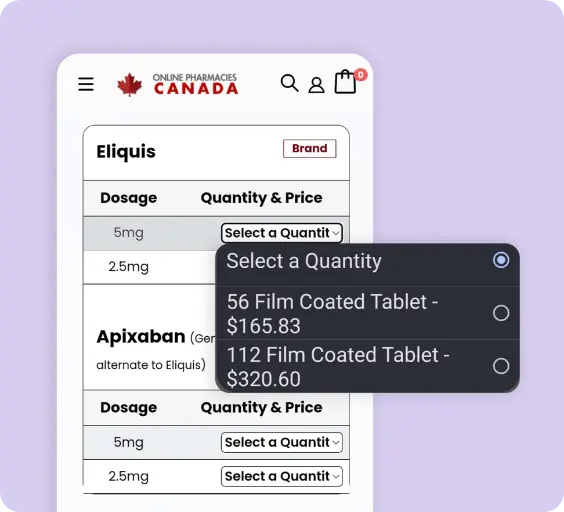Indications
Lithmax is an oral medication used to treat manic episodes of bipolar disorder. It contains Lithium Carbonate which controls the symptoms of bipolar disorder by regulating neurotransmitters, which are responsible for transmitting signals between nerve cells.
Lithmax increases the availability of a neurotransmitter called serotonin and decreases the activity of another neurotransmitter called dopamine, which is associated with manic episodes. By doing so, Lithmax can help stabilize a person's mood and reduce the symptoms of mania.
Use and Dosage
Lithium Carbonate ER comes in the form of 300 mg extended-release tablet to take once or twice daily with food or as directed by your healthcare provider. The tablet should be swallowed whole and not chewed, crushed, or broken. Drink plenty of fluids and maintain a balanced diet while taking the tablet. Also, keep all medical and laboratory appointments while taking the tablet. Note that the tablets should not be taken by people who are severely debilitated or severely dehydrated or are taking diuretics (water pills).
Lithium Carbonate ER should be taken exactly as prescribed by your doctor. If you miss a dose, take it as soon as possible and continue with your regular schedule. If it is almost time for your next dose, skip the missed dose and continue with your regular dosing schedule. Do not take a double dose to make up for a missed one. If you are not sure what to do after missing a dose, contact your doctor or pharmacist for advice.
Side Effects
Common Side Effects of Lithmax (Lithium Carbonate ER):
- Abdominal pain
- Diarrhea
- Increased frequency of urination or loss of bladder control (more common for women than for men, usually begins 2 to 7 years after start of treatment)
- Increased thirst
- Loss of appetite
- Nausea (mild)
- Sensation of spinning (vertigo)
- Tiredness
- Trembling of hands (slight)
- Vomiting
Serious Side Effects of Lithmax (Lithium Carbonate ER):
- Blurred vision
- Clumsiness or unsteadiness
- Confusion, poor memory, or lack of awareness
- Convulsions (seizures)
- Diarrhea
- Difficulty breathing (especially during demanding work or exercise)
- Dizziness
- Drowsiness
- Fainting
- Fast or slow heartbeat
- Frequent urination
- Increase in amount of urine
- Increased thirst
- Irregular pulse
- Lack of coordination
- Loss of appetite
- Low blood pressure
- Muscle weakness
- Ringing in the ears
- Slurred speech
- Stiffness of arms or legs
- Symptoms of too much calcium in the blood (e.g., fatigue, confusion, excessive thirst, increased urination, muscle weakness)
- Trembling (severe)
- Unusual tiredness or weakness
- Weight gain
Forms and Strength
Lithmax (Lithium Carbonate ER) is available in the following forms and strength:
Lithium Carbonate ER: Extended-Release Tablet
- 300 mg
Cautions
- Lithium toxicity is strongly correlated with serum lithium levels and can occur at doses close to therapeutic levels.
- Lithmax should be used with caution in patients with heart, kidney, or electrolyte imbalances.
- Lithmax may cause adverse effects on the fetus if used during pregnancy, so it should be used carefully during pregnancy and avoided when possible.
- Lithmax may interact with other medications, including non-steroidal anti-inflammatory drugs (NSAIDs), diuretics, and ACE (Angiotensin Converting Enzyme) inhibitors, among others.
- Lithium levels in the blood should be regularly monitored while taking Lithmax, as elevated levels can lead to serious side effects such as seizures and kidney failure.
- Lithmax may affect thyroid function and should be used with caution in patients with thyroid problems.
- Patients who are dehydrated or who have low sodium levels should not take Lithmax as it can worsen these conditions.
- Lithmax should be used with caution in elderly patients, as they may be more susceptible to the medication's side effects.
- Patients with a history of seizures should use Lithmax with caution, as the medication may lower the seizure threshold.
- Lithmax can be dangerous if taken in overdose and can lead to serious health problems or death.
Frequently Asked Questions (FAQ)
How long does it take for Lithmax to start working?
It may take several weeks for Lithmax to start working and for improvements in symptoms to be observed. However, continue taking the medication as directed by your healthcare provider.
Who should not take Lithmax?
Lithmax should not be taken by individuals who have certain medical conditions, such as kidney or heart disease, or who are taking certain medications. Discuss all medical conditions and medications with your healthcare provider before starting Lithmax.
How is Lithmax taken?
Lithmax is typically taken once or twice daily with food or as directed by your healthcare provider. Follow the dosing instructions provided by your healthcare provider and to not make any changes to your medication regimen without consulting with them first.
Resources
- https://www.aapharma.ca/downloads/en/PIL/2016/Lithmax-PM.pdf
- https://www.uniprix.com/en/drug-lexicon/02266695/lithmax
- https://keltymentalhealth.ca/sites/default/files/documents/lithium_medication_information_-_feb_2013.pdf
- https://www.aapharma.ca/downloads/en/PIL/2016/Lithmax-PM.pdf
- https://www.medbroadcast.com/drug/getdrug/lithmax














REVIEWS